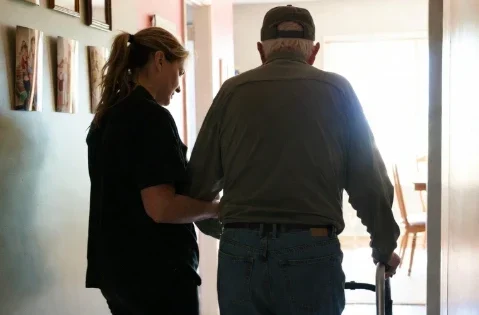Hearing loss is more than an inconvenience; it’s a significant national health issue that affects approximately 48 million Americans1.
According to the National Institute of Health (NIH), untreated hearing loss may lead to other serious health problems, including depression and lapses in memory. Despite this connection, many people who have difficulty hearing do not seek help. This avoidance may be due to a complicated hearing aid market and the fact that most health plans, including Medicare, do not cover hearing aids2.
We can’t address the insurance coverage dilemma, but we can try to simplify the overflowing hearing aid market to help you choose the best device for your ears.
Hearing aid technology has come a long way! Unlike the cumbersome, indiscreet designs of the past, today’s hearing aids are small and sensible. Thanks to digitization, devices are better at both amplifying sound and reducing unwanted feedback. Digital hearing aids come in five major styles categorized by size and where on (or in) the ear they are worn. The most popular, per Consumer Reports, is the mini, behind-the-ear design 3.
At the most basic level, all hearing aids contain:
• Microphone that picks up sound
• Amplifier to make sound louder
• Receiver that sends the sound into the ear canal
Today, microphones transmit sound to a computer chip that adjusts the volume and amplifies the sound frequencies needed to improve hearing. A hearing professional, called an audiologist, helps you discern which hearing aid design best fits your ear and can program a digital hearing aid to fit your lifestyle and hearing loss pattern. An older adult living in bustling Manhattan, for example, needs different settings than someone in rural Montana. More and more, hearing aids sync wirelessly with smartphones, enabling users to take calls, stream audio, and even adjust your hearing aid settings through an app3.
In addition to the basics, most modern hearing aids have a telecoil inside the device. What’s a telecoil?
A telecoil (AKA “T-Switch”) is a small sensor or copper wire that is placed inside a hearing aid to induce an electrical current when in the presence of a magnetic field (in other words, the telecoil is able to turn energy into sound.) If you’ve ever seen a device labeled Hearing Aid Compatible (HAC), it means that the product works with telecoils. Today, most phones are HAC and generate the magnetic signal a telecoil needs to function. After the Americans with Disabilities Act, many public areas such as theaters, auditoriums, and sports stadiums are required to provide Assistive Listening Systems (ALS). These ALSs are HAC, so if you have a telecoil inside your hearing aid, you’ll be able to hear better in these magnetic field-enhanced areas than you would with acoustics only. In these moments, a wearer can turn off a microphone and avoid all background noise– a great option for many scenarios!
If this technology talk sounds overwhelming, stick with an analog hearing aid. A simple microphone, amplifier, and receiver can be more user friendly to fit your lifestyle.
Hearing aids are not a decision to make alone. Alliance Homecare can help you through the process. Sometimes, hearing loss can indicate an underlying medical issue. Contact us at (877) 687-7380 to speak with our expert Care Managers today.
References: 1. John Hopkins Medicine news release. One in Five Americans Has Hearing Loss. http://bit.ly/1sZmGxb. Accessed September 12, 2017. 2. Your Medicare Coverage. Hearing aids. https://www.medicare.gov/coverage/hearing-and-balance-exam-and-hearing-aids.html. Accessed September 12, 2017. 3. Consumer Reports Hearing Aids Buying Guide. https://www.consumerreports.org/cro/hearing-aids/buying-guide. Accessed September 12, 2017.




